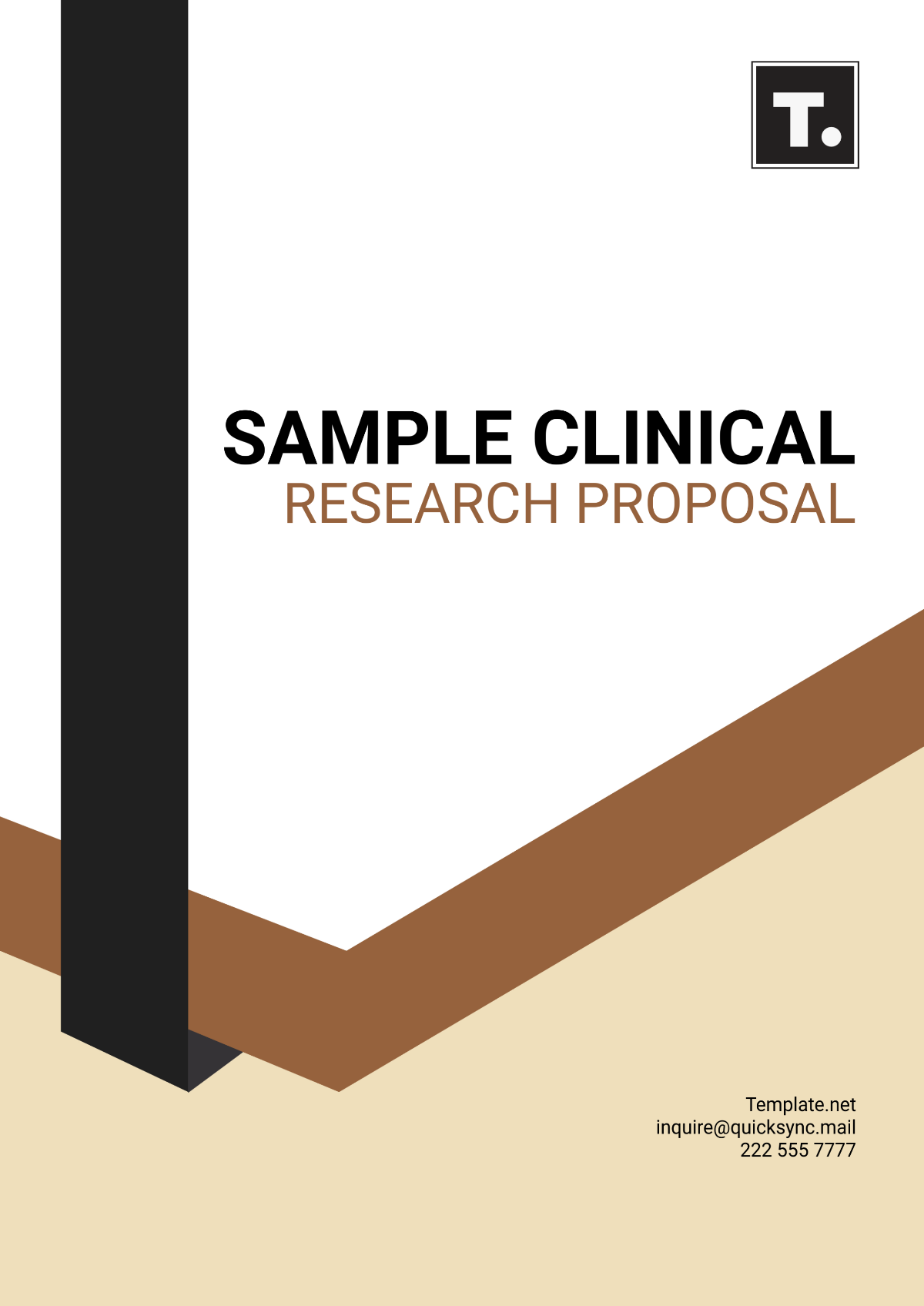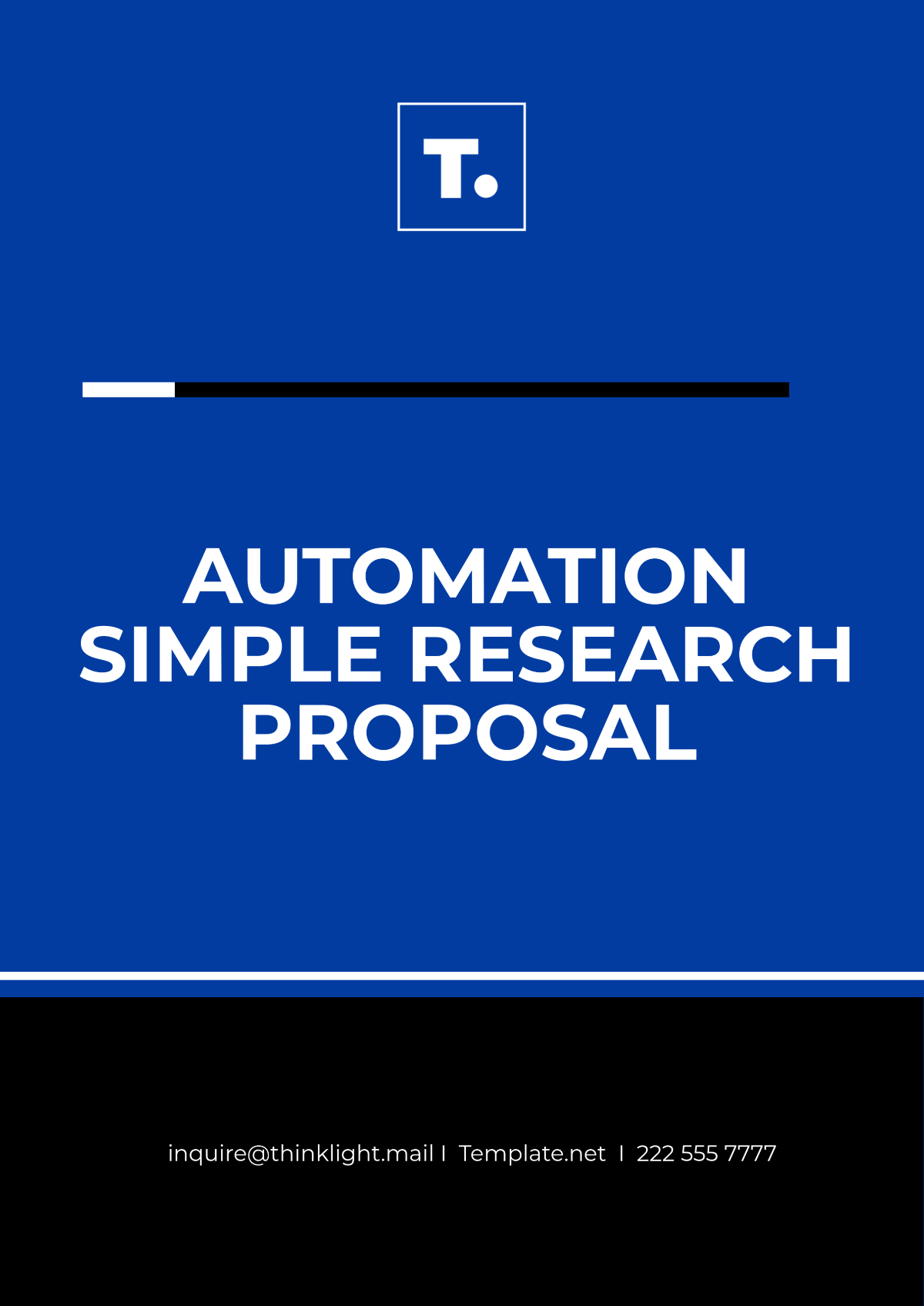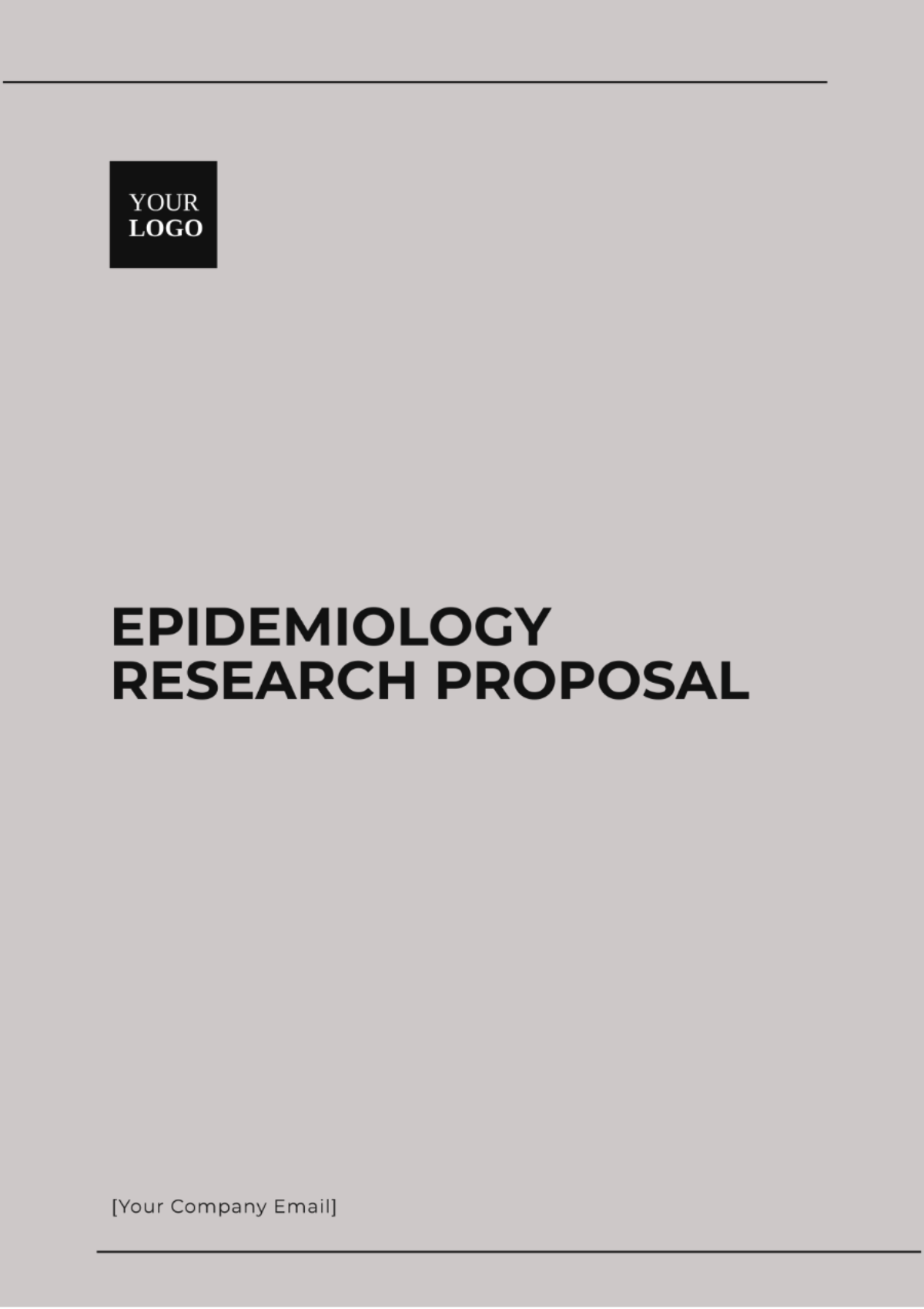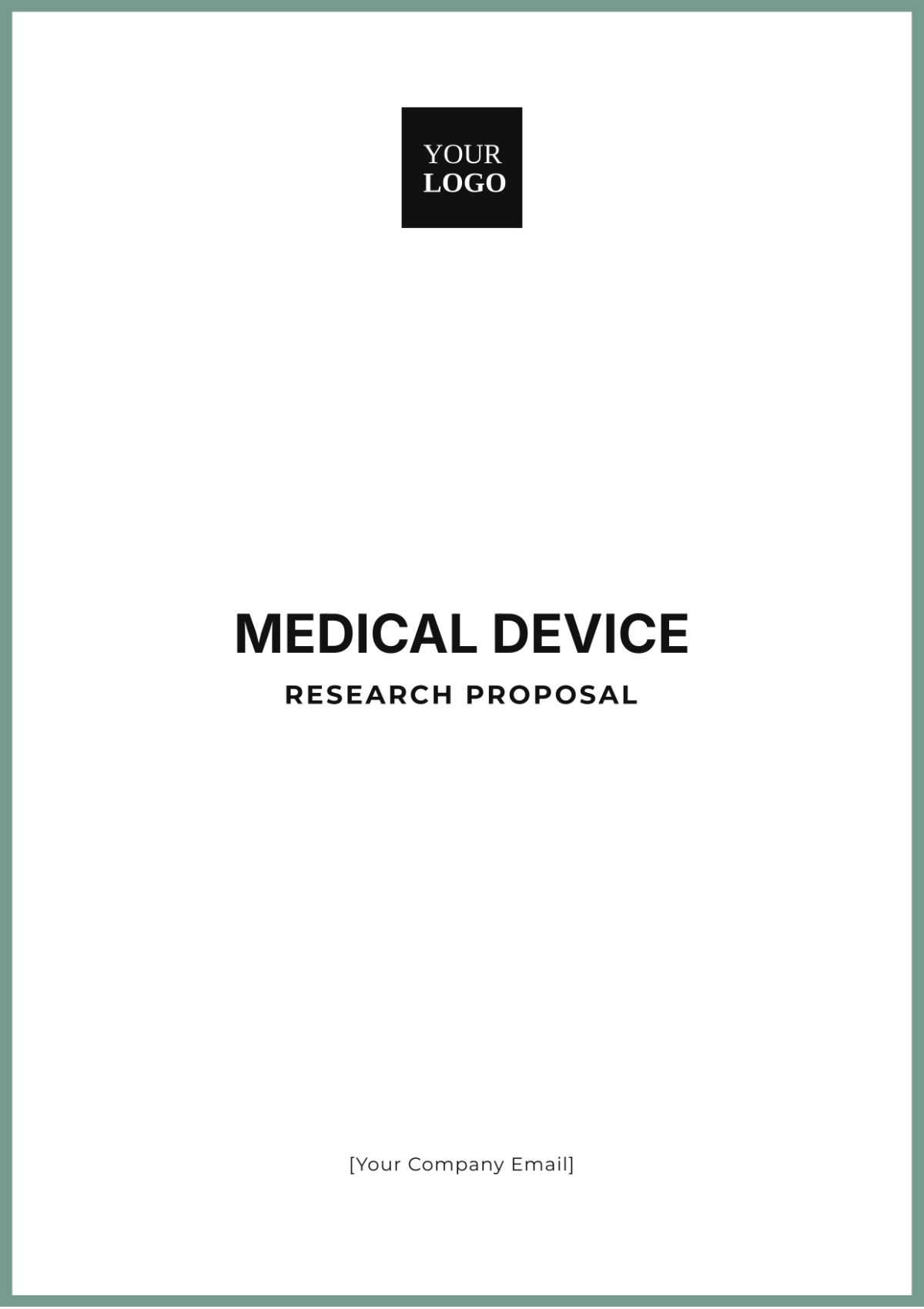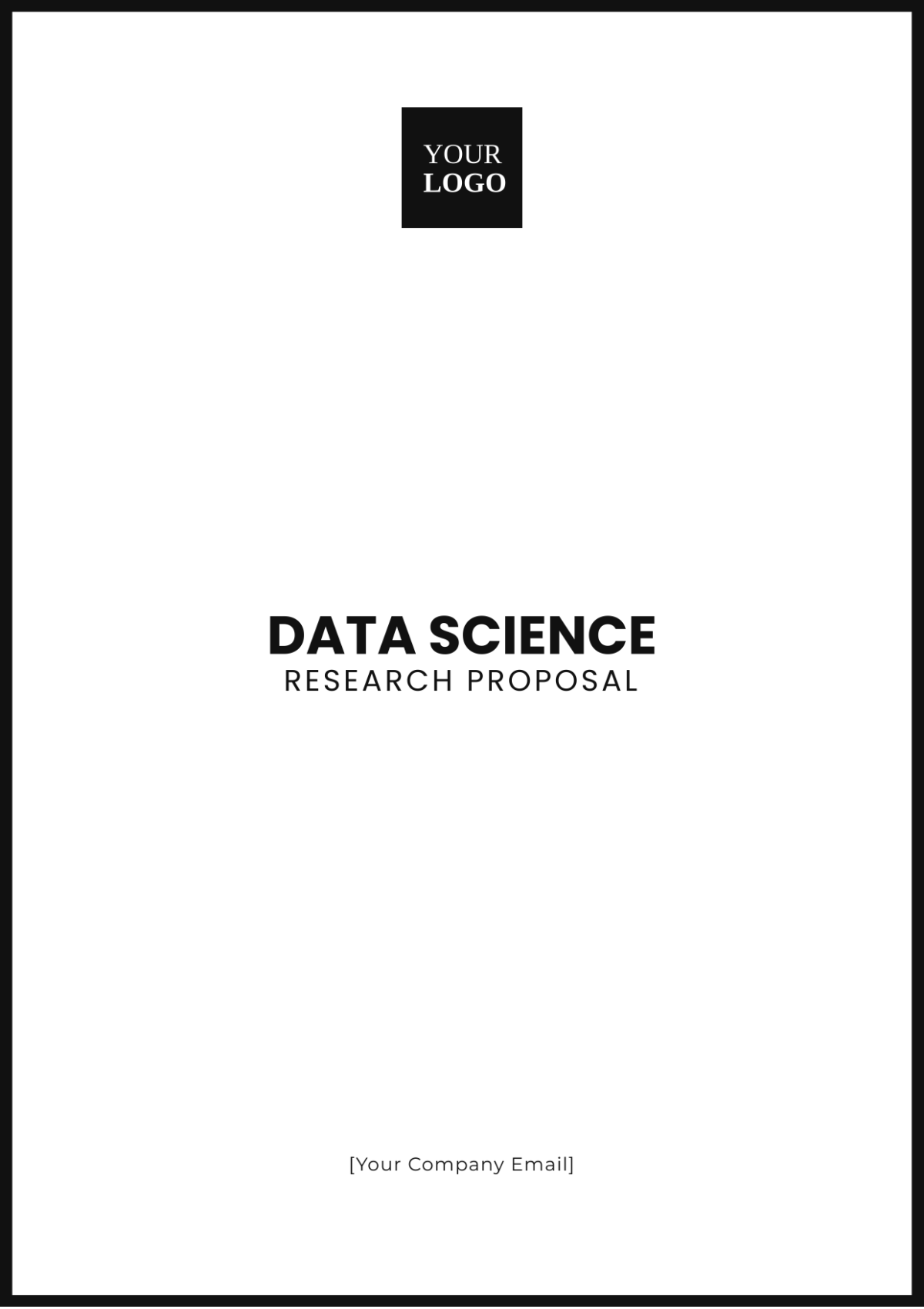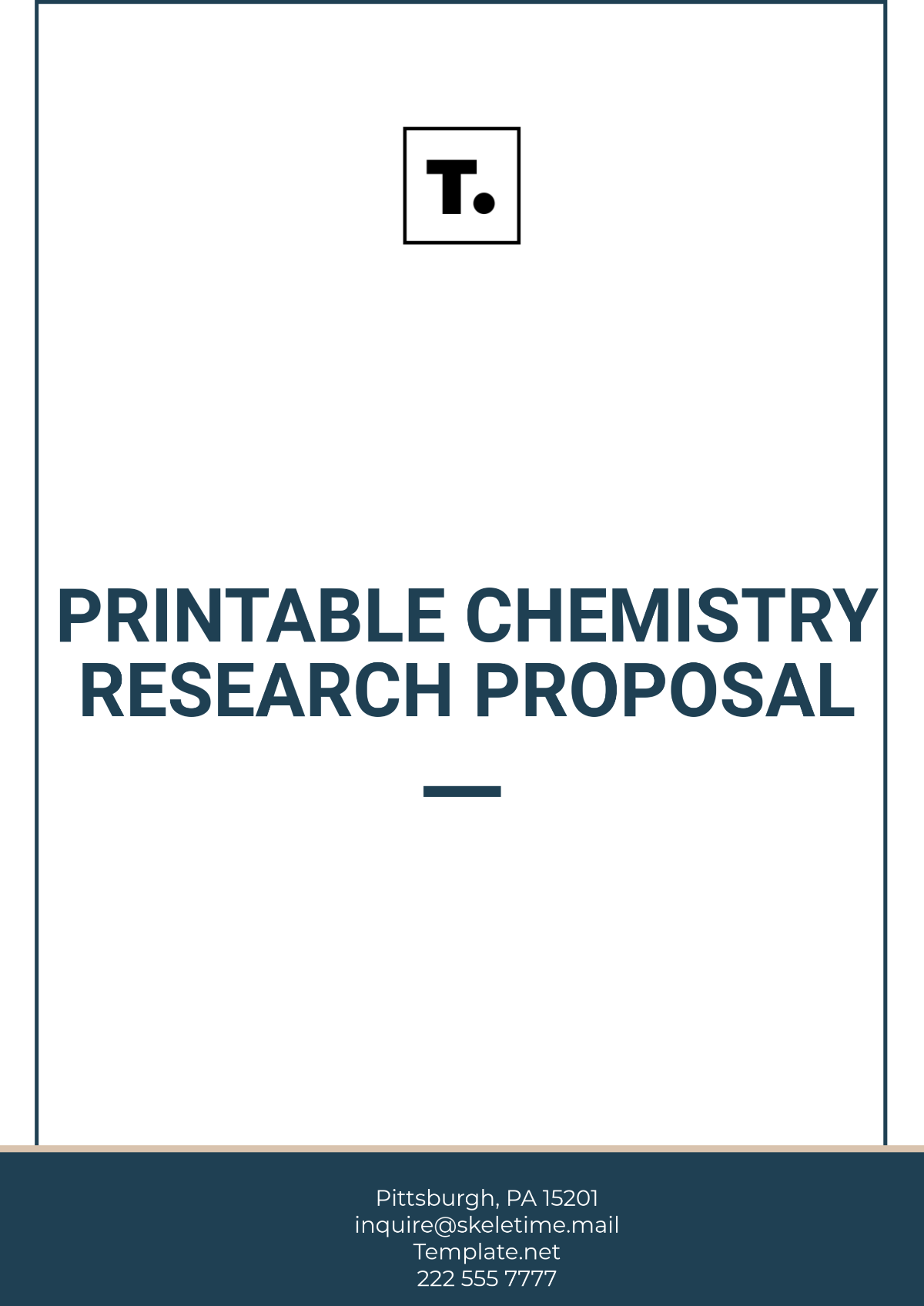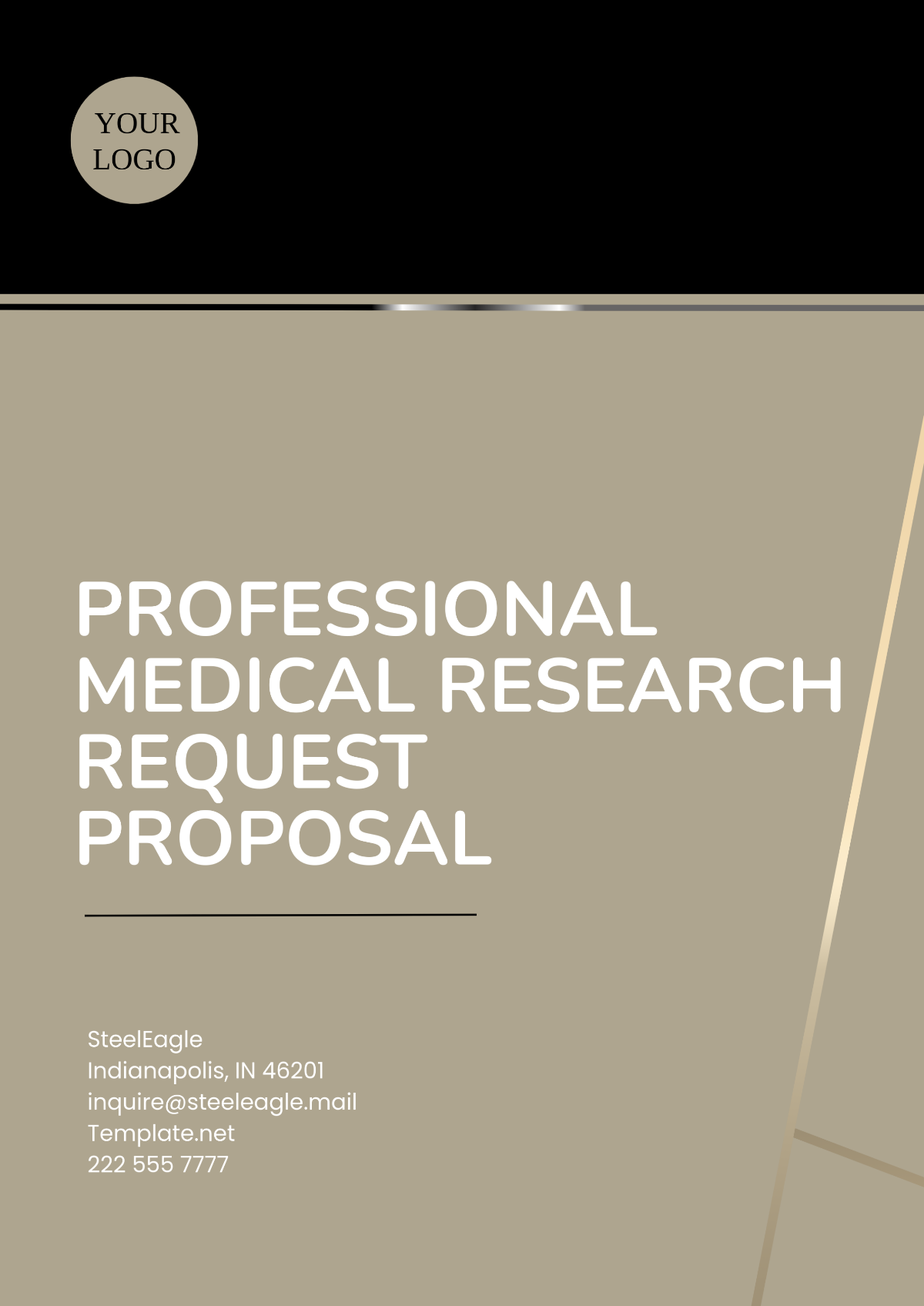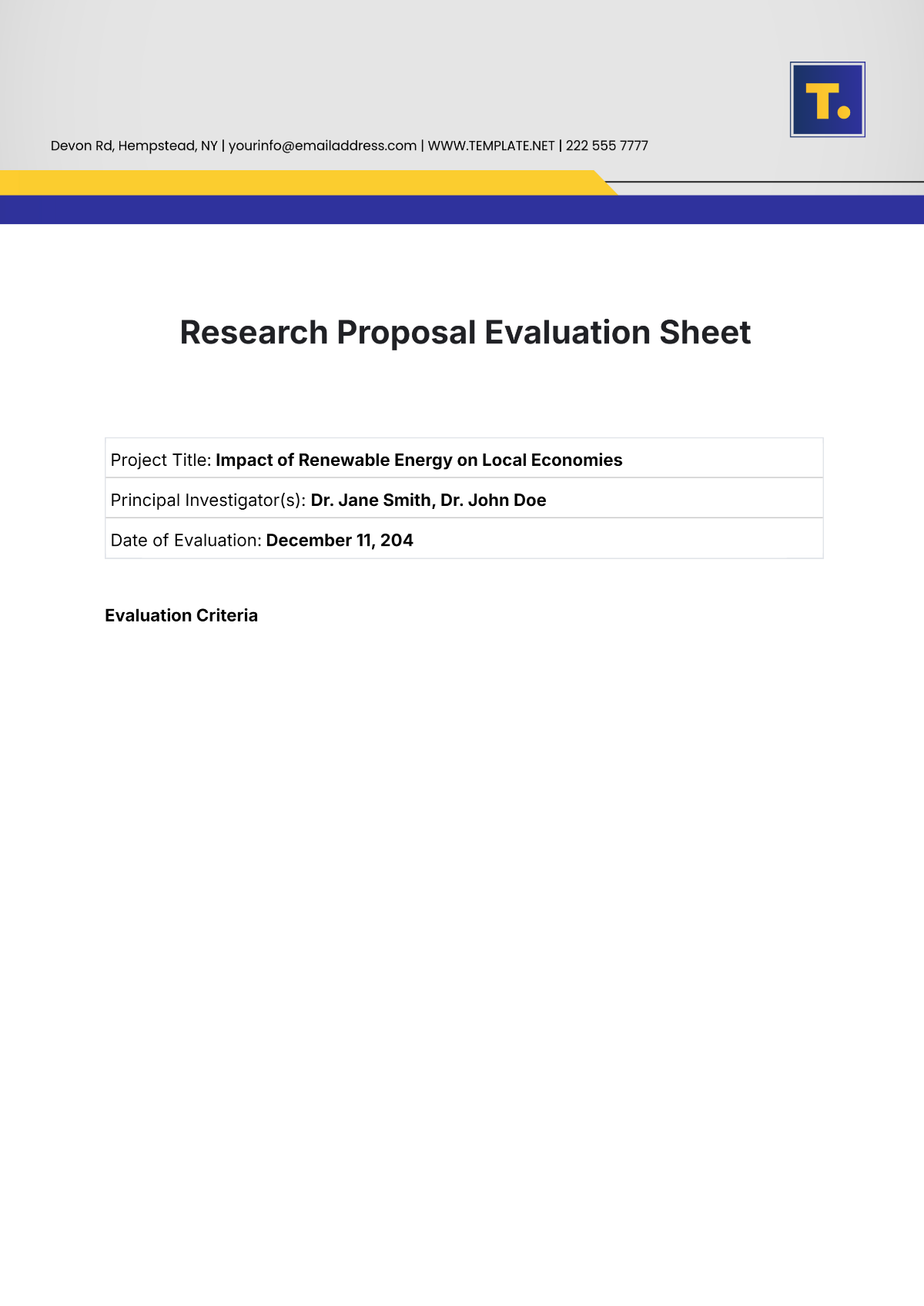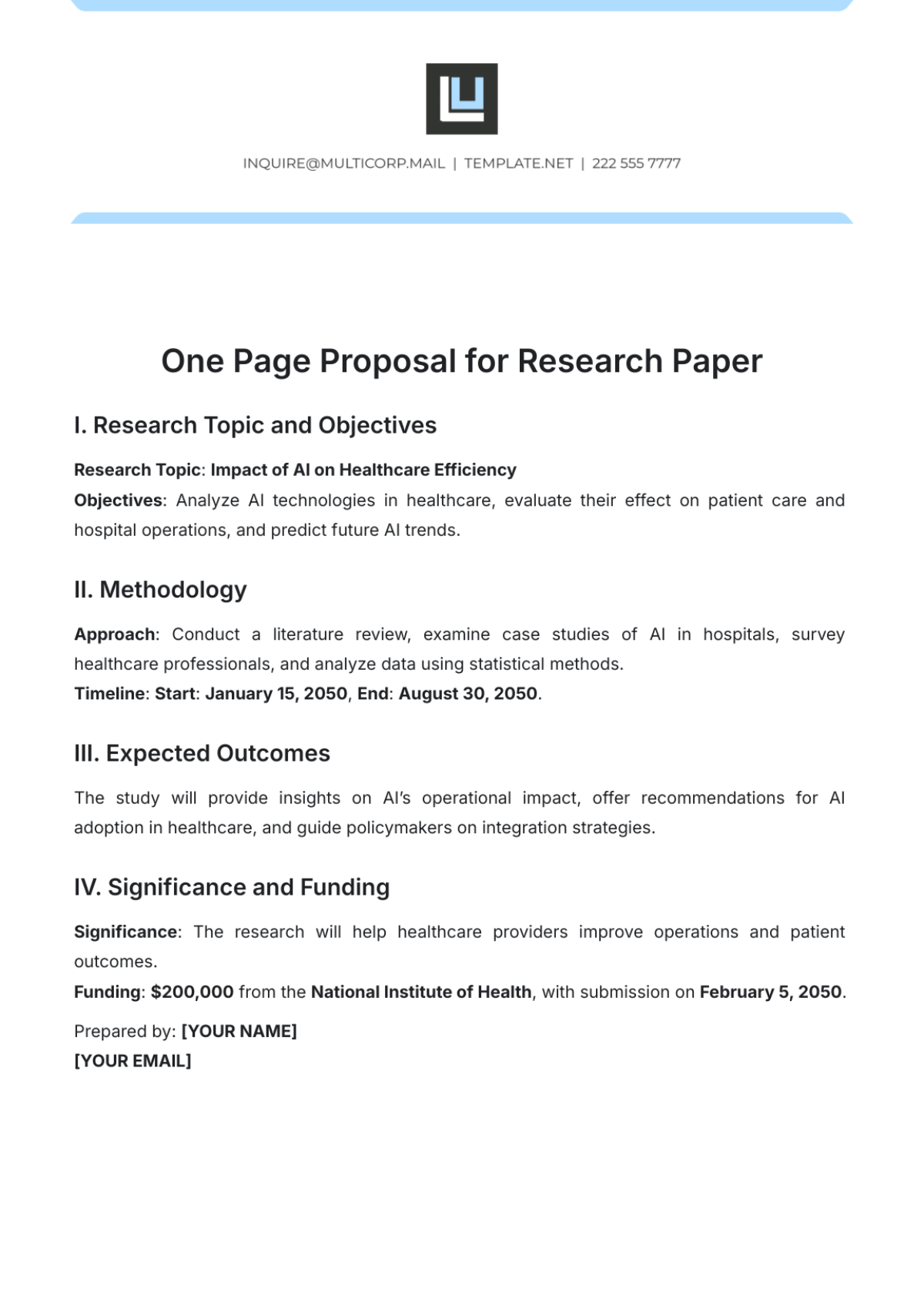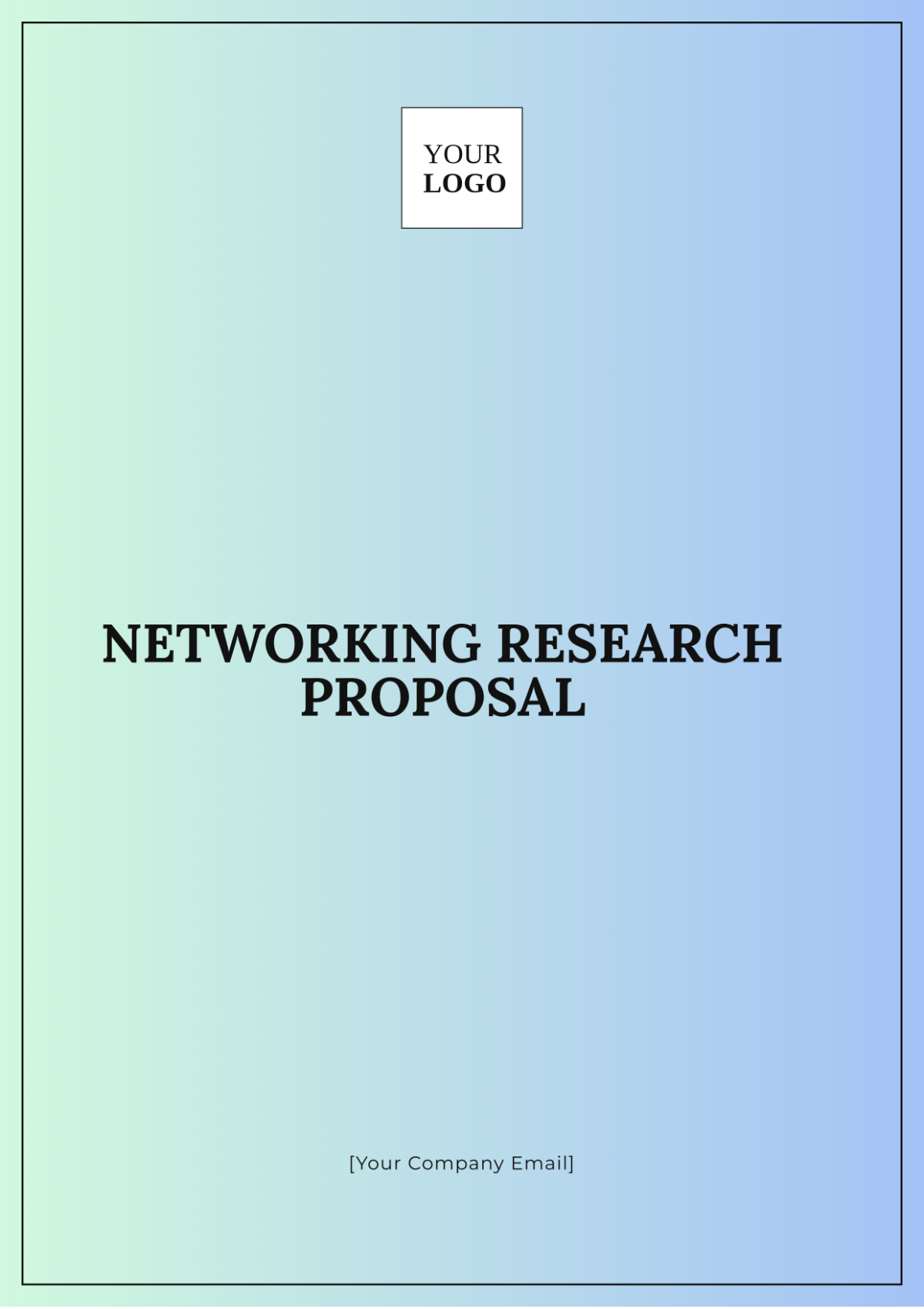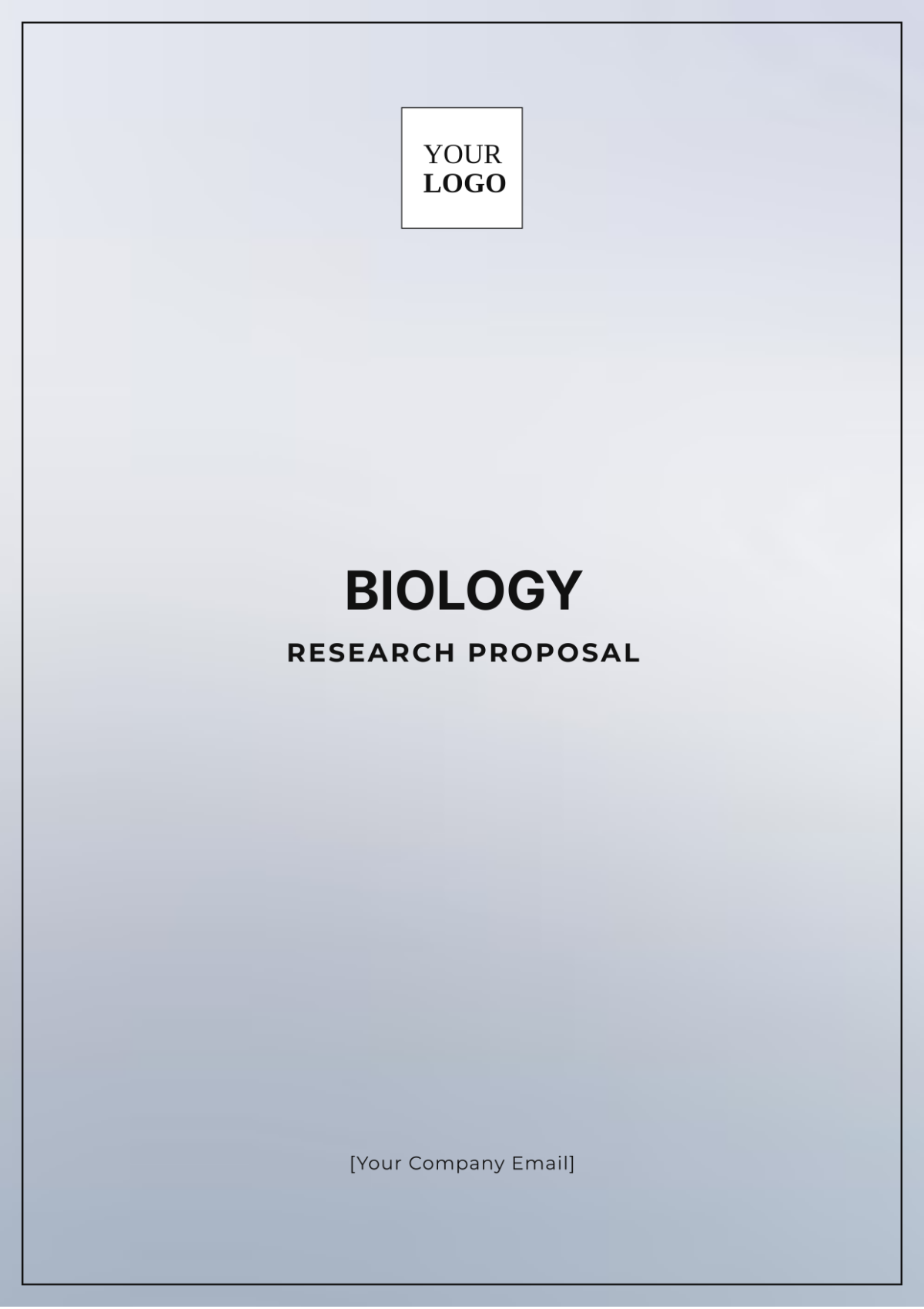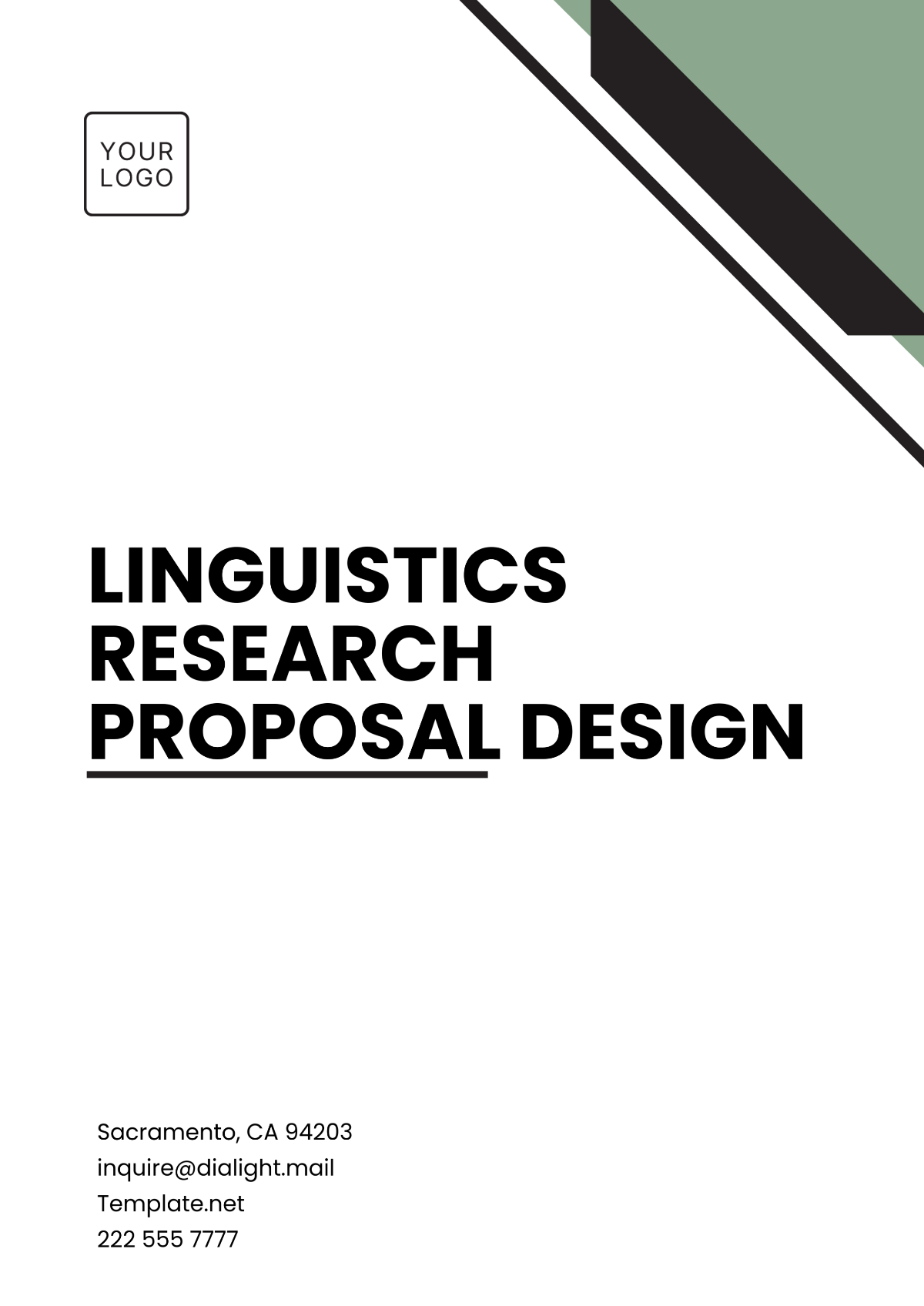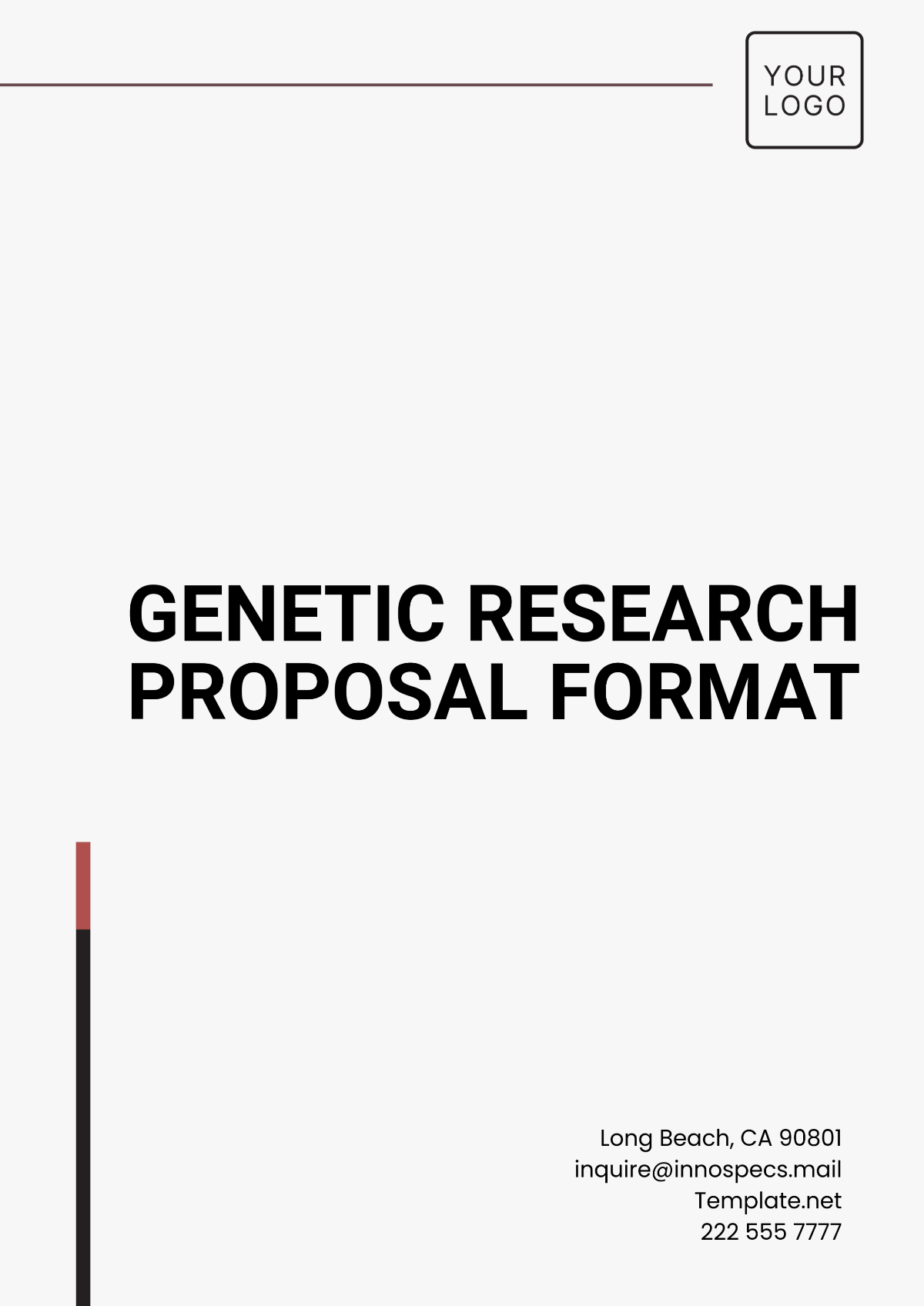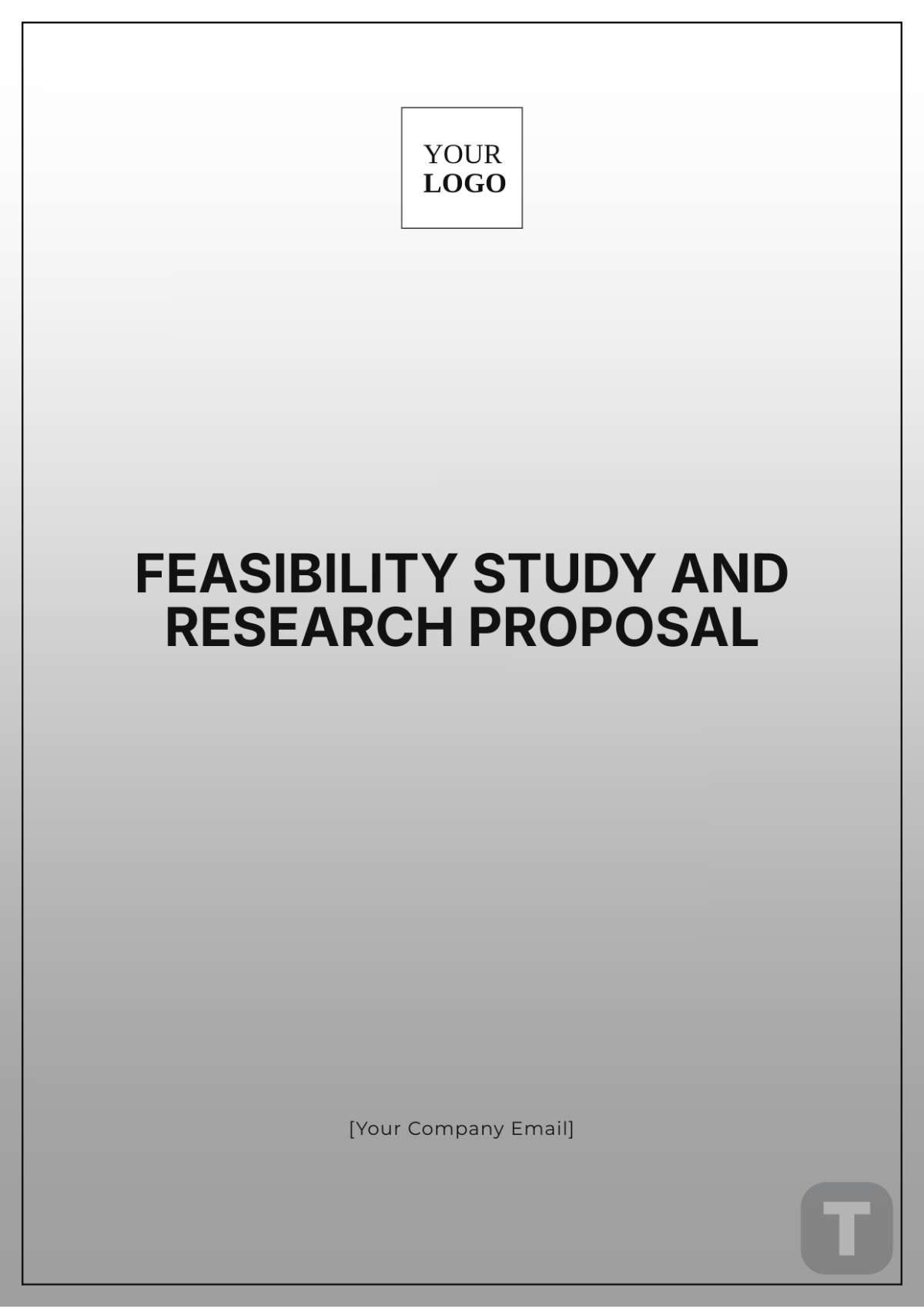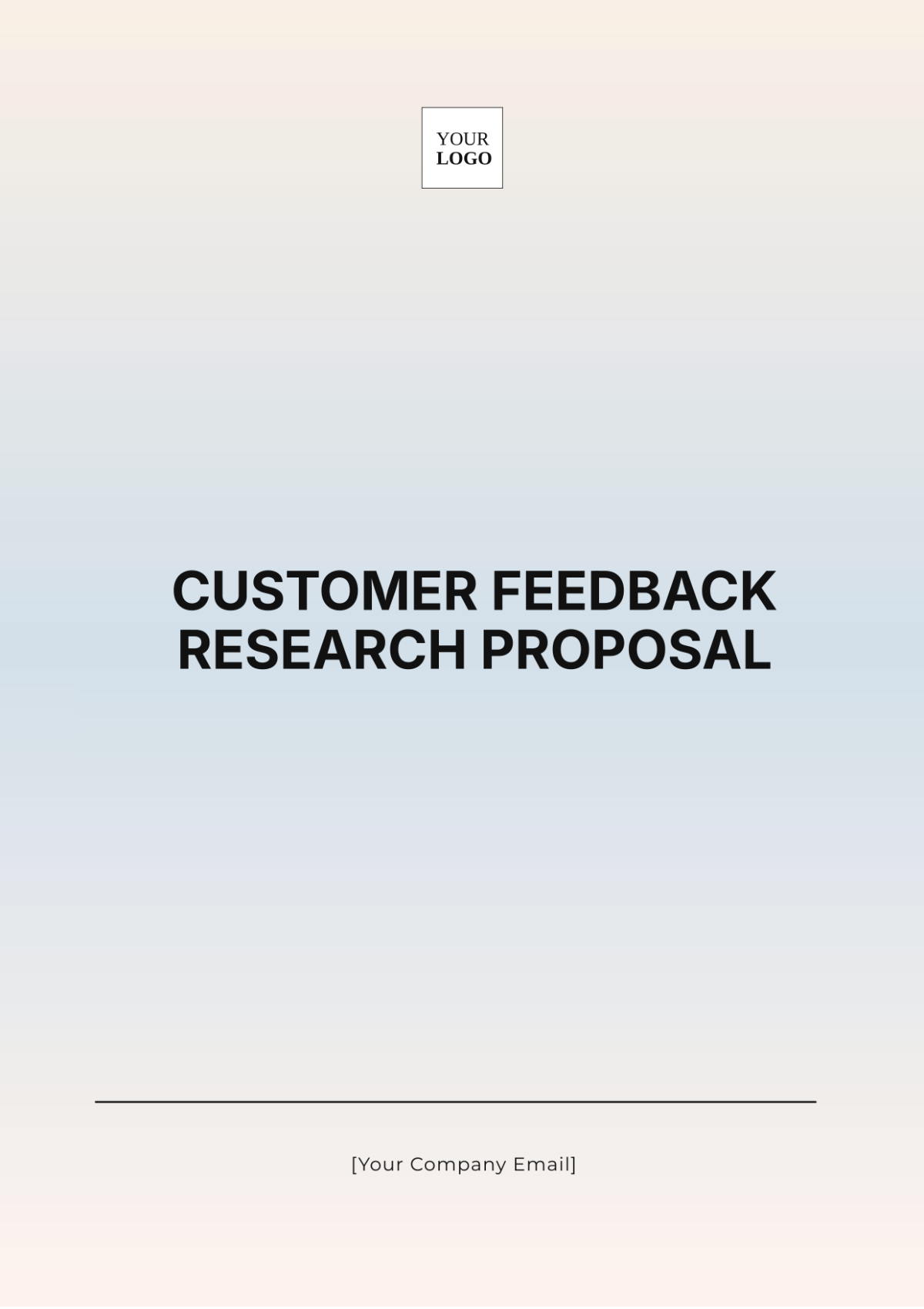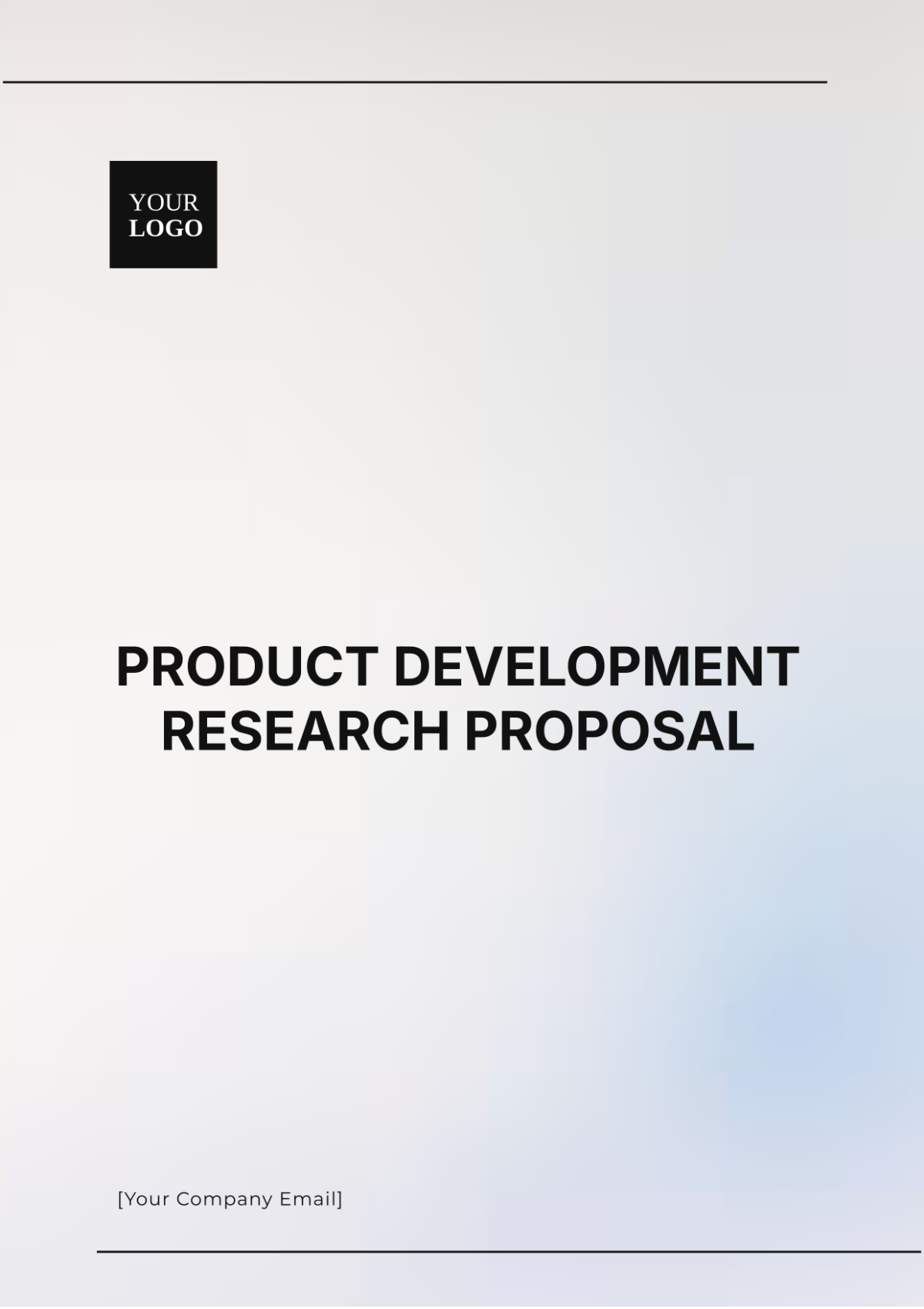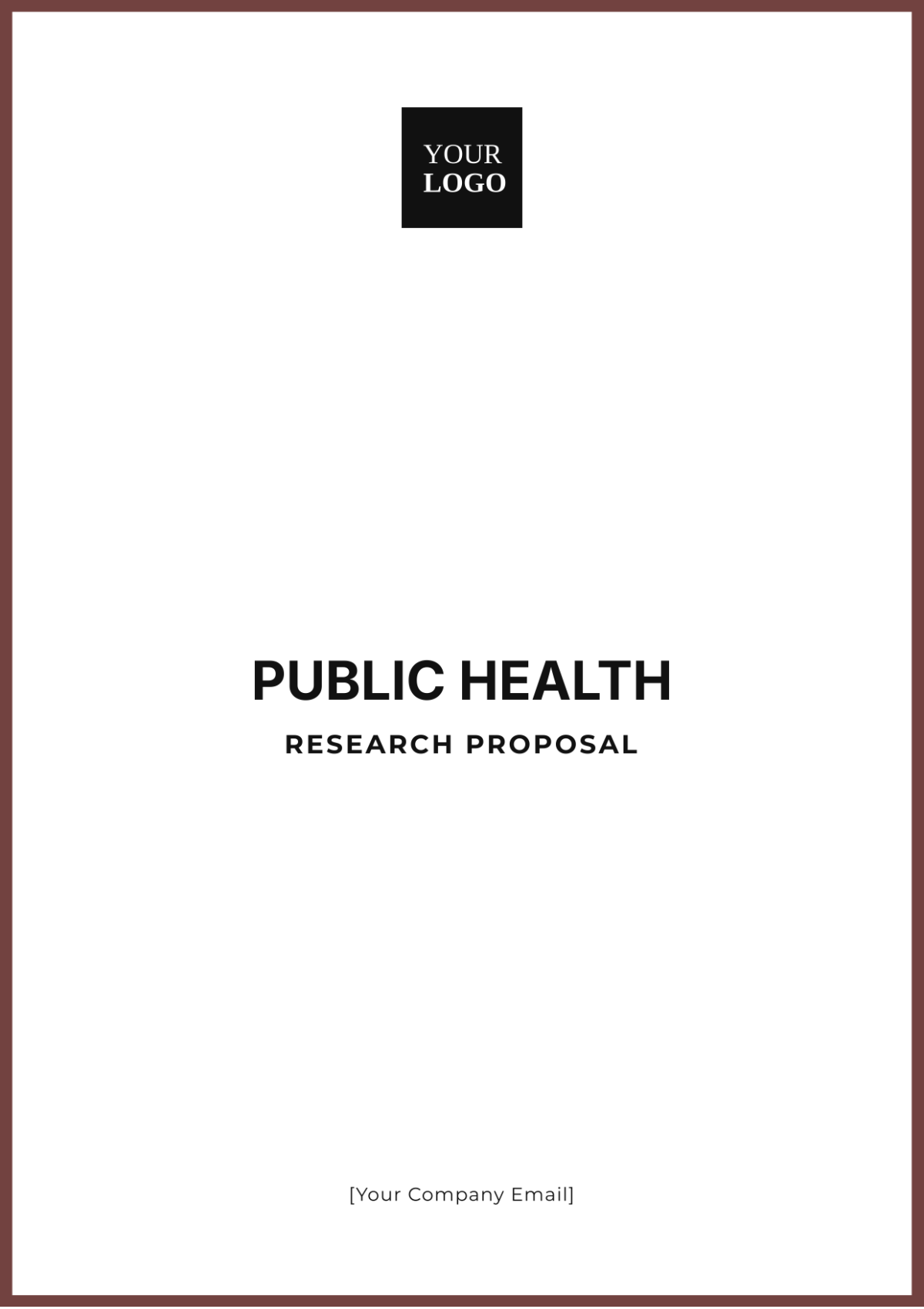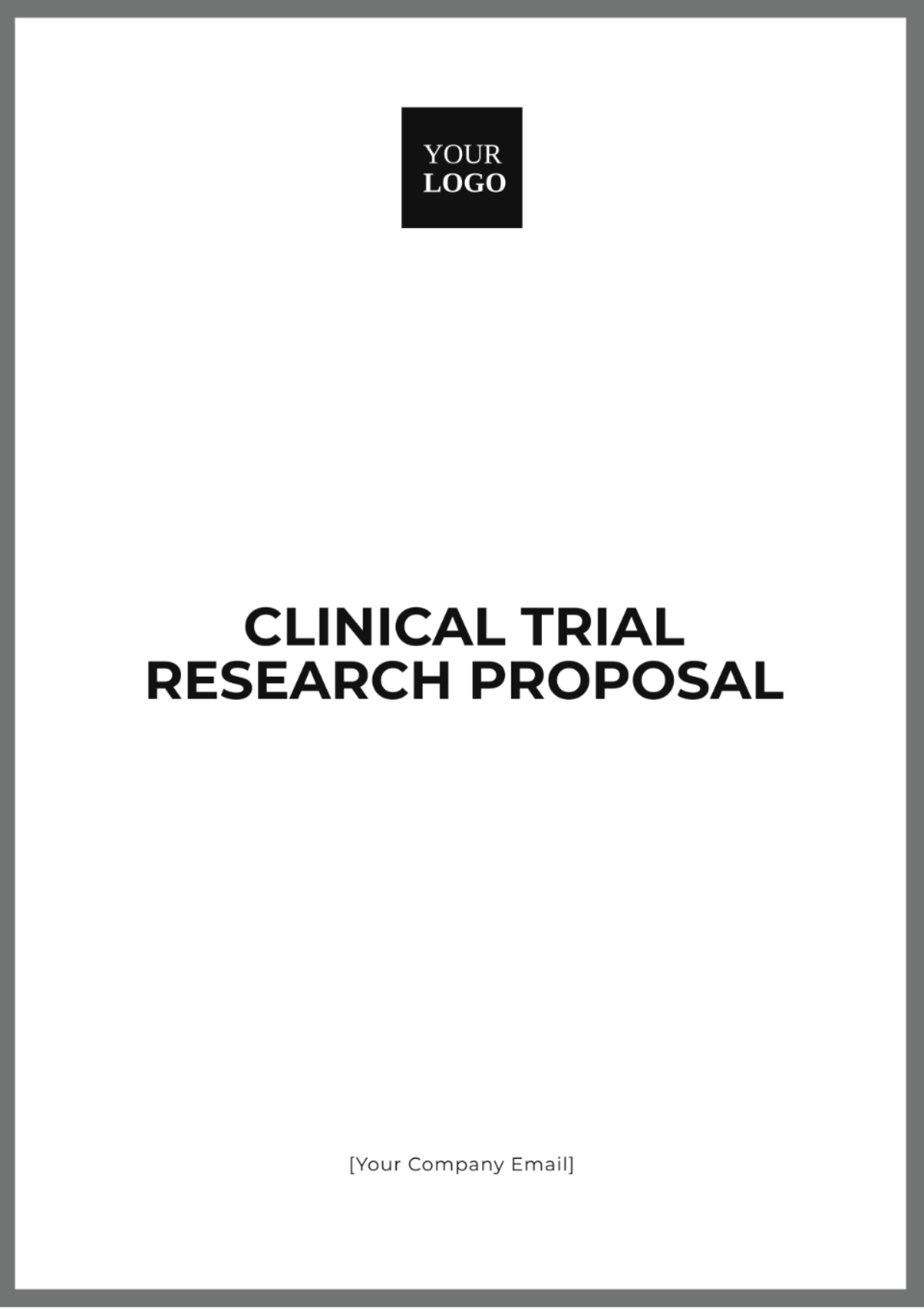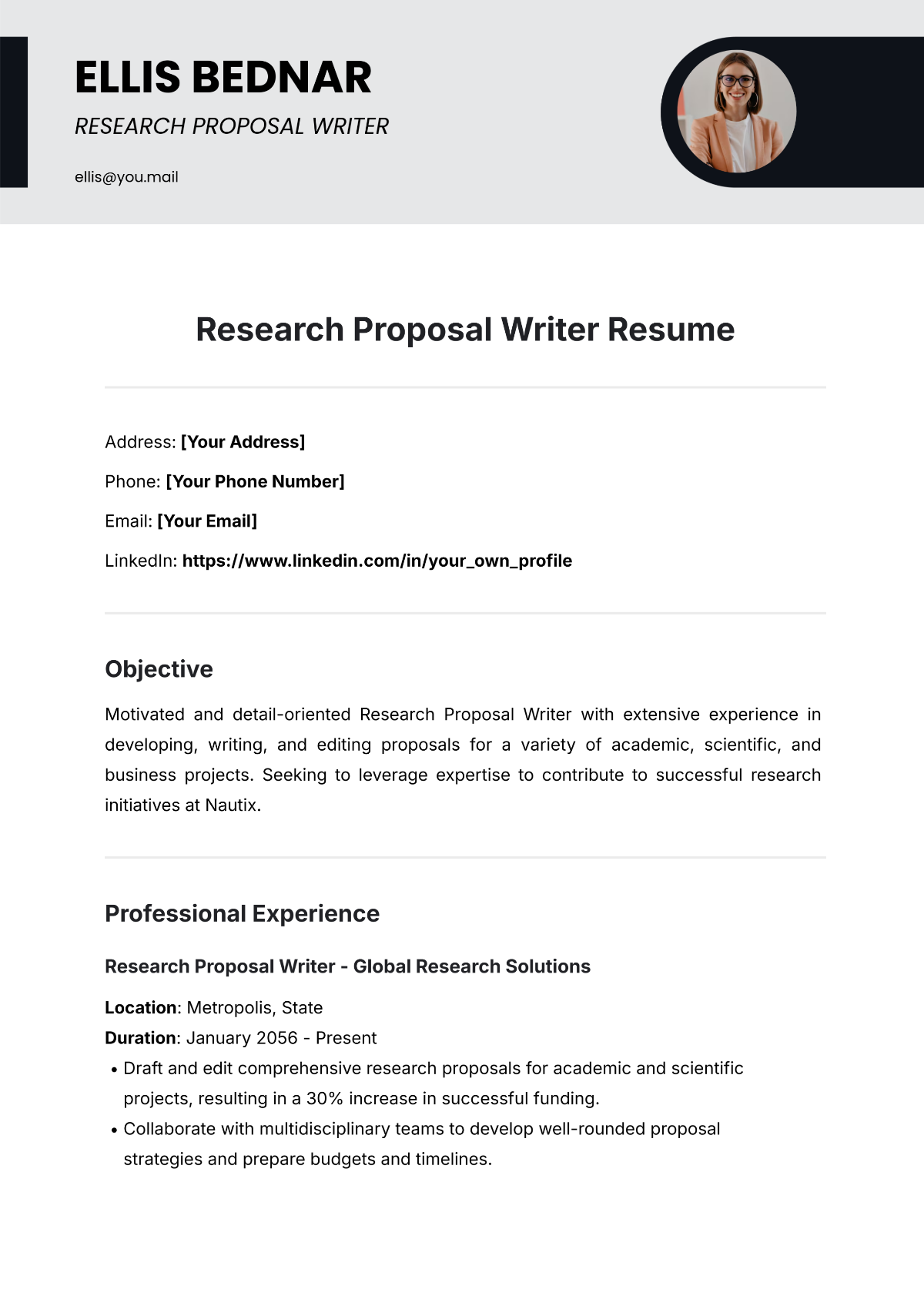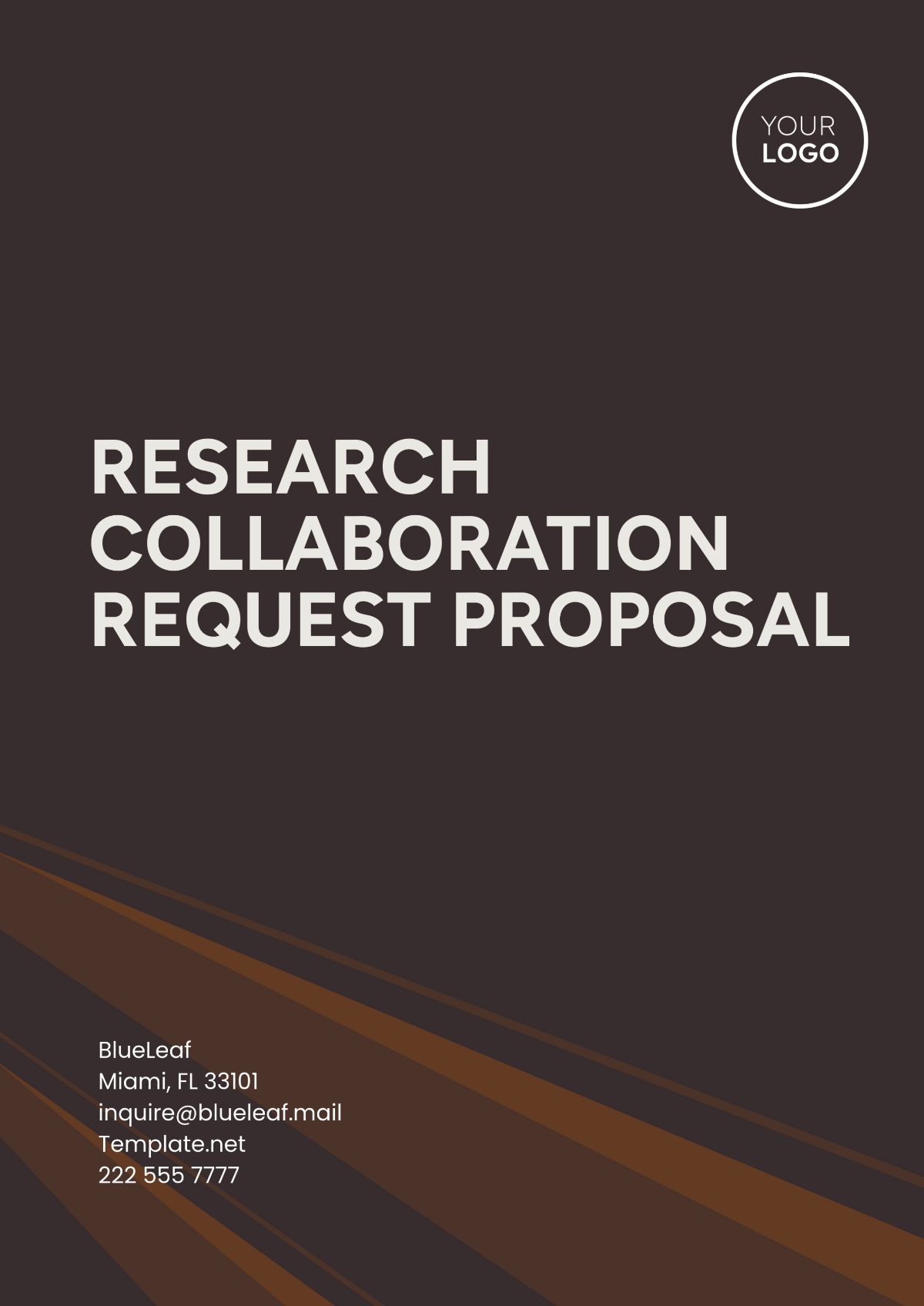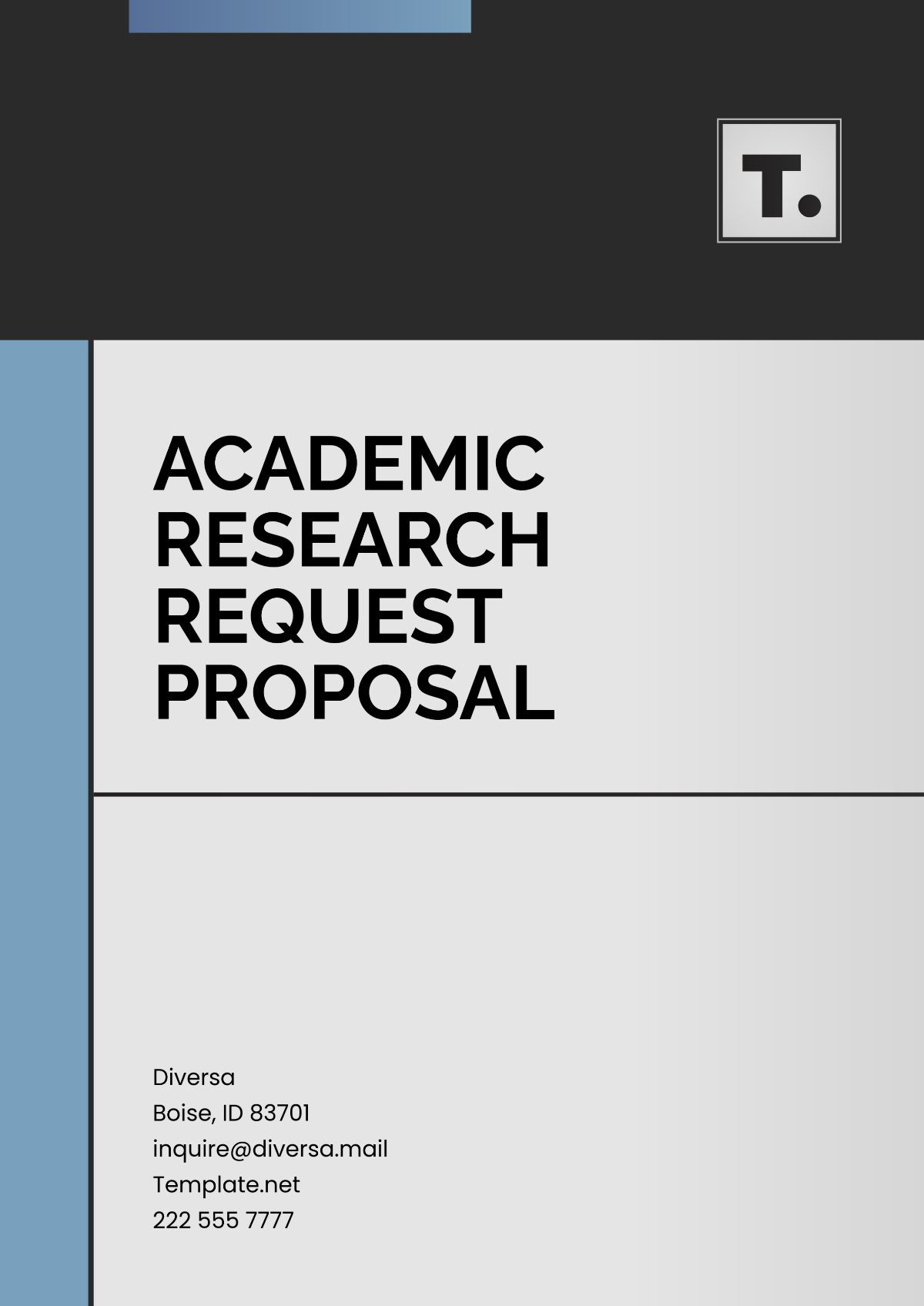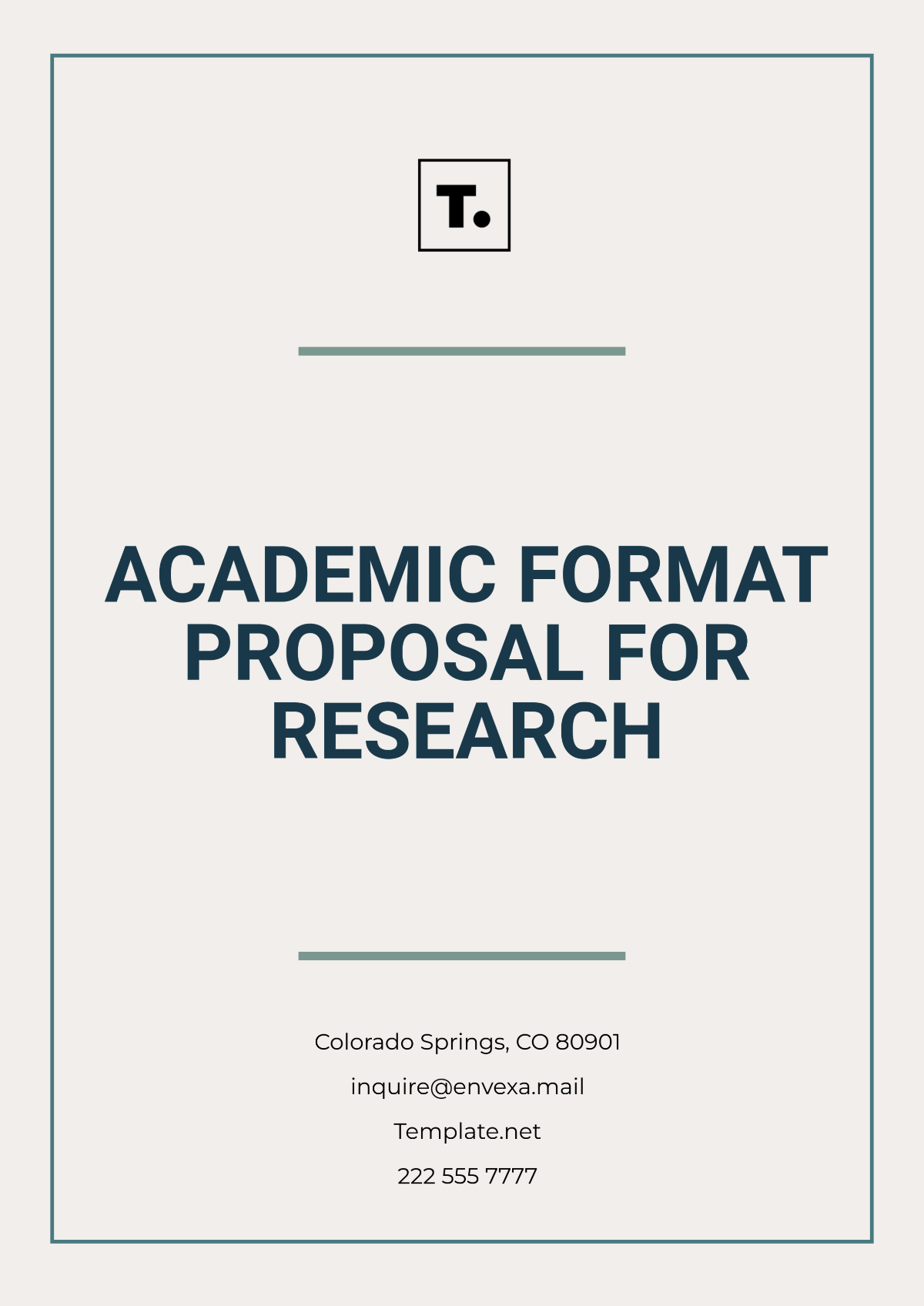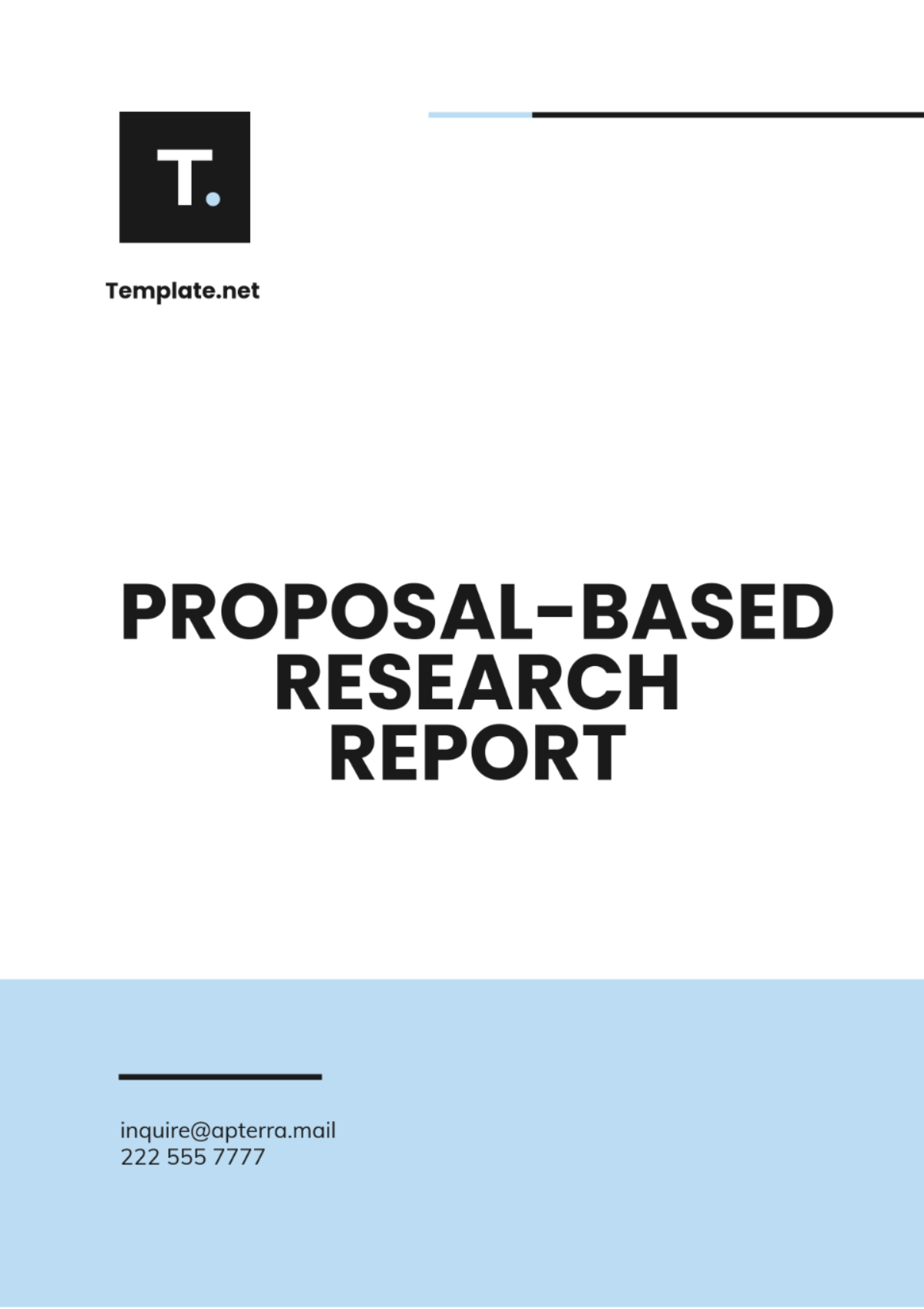Proposal Abstract Research Proposal
Prepared By: [Your Name]
I. Abstract
This research proposal seeks to explore how Artificial Intelligence (AI) is revolutionizing various industries, particularly healthcare, by improving diagnostic accuracy, creating personalized treatment plans, and boosting administrative efficiency. The study will examine recent AI advancements in healthcare, assess their potential to transform medical practices, and address implementation challenges, with the ultimate objective of evaluating AI's impact on healthcare outcomes and identifying factors affecting its adoption and effectiveness.
II. Introduction
The study investigates AI's transformative role in healthcare, examining its impact on diagnostic accuracy, personalized treatment, and operational efficiency by leveraging AI's ability to analyze large datasets, recognize patterns, and support real-time decisions, while also addressing the ethical considerations and implementation challenges associated with its use.
III. Objectives
To evaluate the impact of AI on enhancing diagnostic accuracy in clinical settings.
Explore AI in personalizing treatment plans and boosting patient outcomes.
To analyze AI-driven improvements in administrative processes and efficiencies.
To assess the challenges and ethics of implementing AI in healthcare.
IV. Methodology
This research will employ a mixed-methods approach, combining quantitative and qualitative data collection and analysis. The methodology will include:
Literature Review: A comprehensive review of current literature, including peer-reviewed journals, conference papers, and authoritative sources, will provide a foundation for understanding AI's role in healthcare.
Case Studies: Detailed case studies of AI applications in various healthcare settings will illustrate real-world examples of AI's impact on diagnostic accuracy, personalized treatment, and administrative efficiency.
Expert Interviews: Semi-structured interviews with healthcare professionals, AI developers, and ethicists will offer insights into the practical challenges, ethical dilemmas, and future directions of AI in healthcare.
V. Expected Outcomes
A nuanced understanding of AI’s contribution to improving diagnostic accuracy, with evidence from case studies and literature.
Insights into the effectiveness and patient outcomes associated with AI-driven personalized treatment plans.
Identification of operational efficiencies, cost savings, and potential bottlenecks in healthcare administration through AI integration.
A comprehensive analysis of the ethical and implementation challenges associated with AI in healthcare, guiding future AI adoption.
VI. Timeline
Activity | Timeline |
|---|---|
Literature Review | Month 1-2 |
Case Studies | Month 3-4 |
Expert Interviews | Month 5 |
Data Analysis | Month 6 |
Report Writing | Month 7-8 |
Final Review | Month 9 |
VII. References
Esteva, A., Kuprel, B., Novoa, R. A., Ko, J., Swetter, S. M., Blau, H. M., & Thrun, S. (2050). Dermatologist-level classification of skin cancer with deep neural networks. Nature, 542(7639), 115-118. https://doi.org/10.1038/nature21056
Topol, E. J. (2050). High-performance medicine: the convergence of human and artificial intelligence. Nature Medicine, 25(1), 44-56. https://doi.org/10.1038/s41591-018-0300-7
Jiang, F., Jiang, Y., Zhi, H., Dong, Y., Li, H., Ma, S., ... & Wang, Y. (2050). Artificial intelligence in healthcare: past, present and future. Stroke and Vascular Neurology, 2(4), 230-243. https://doi.org/10.1136/svn-2017-000101
